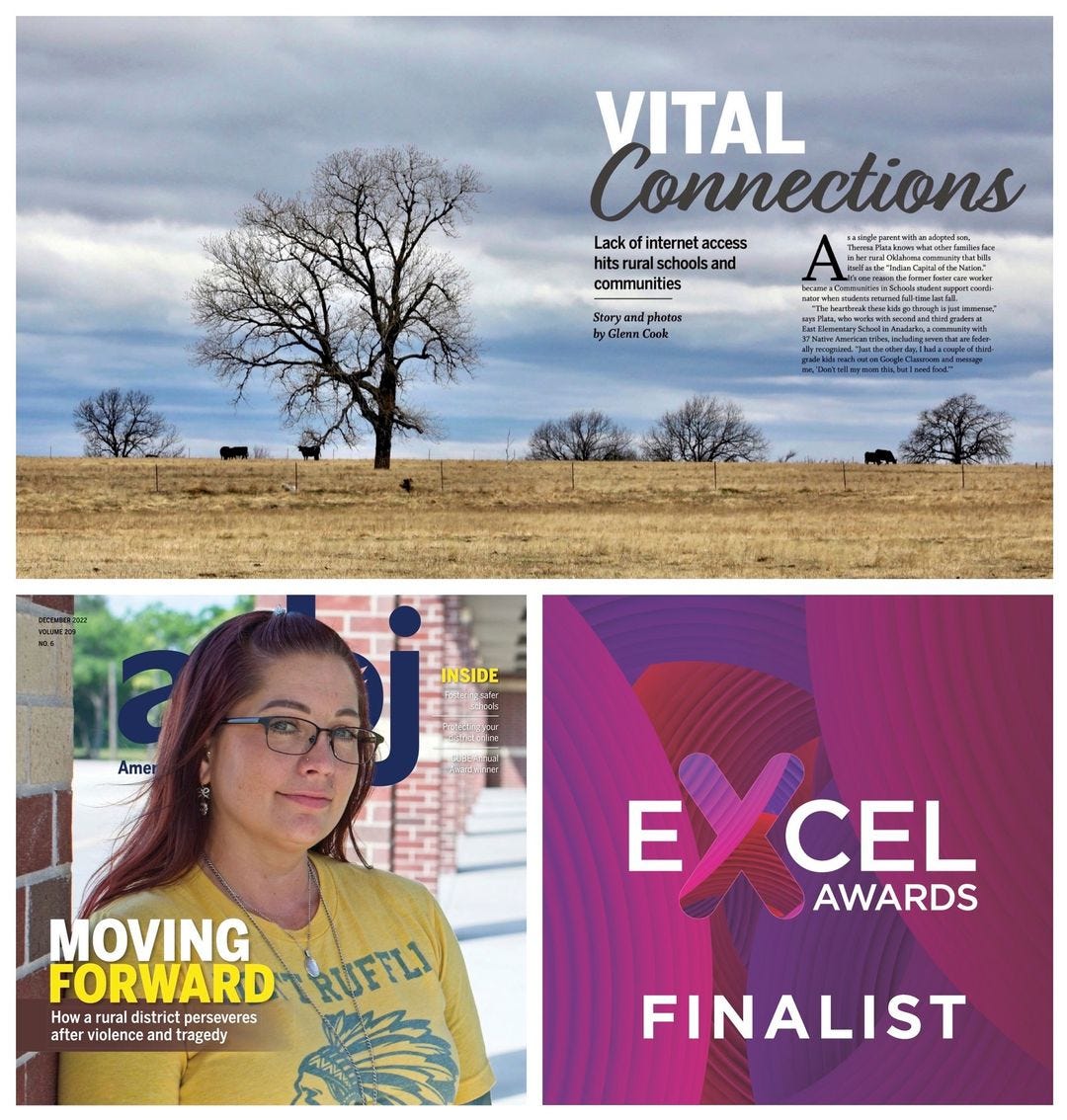Writing: Love and Hate
Now 40 years into this, I wonder sometimes why I do it ... and then I remember
I love writing. I hate writing.
Often those two emotions cross my mind in the same day, sometimes in the same moment, as I’m working on a piece that eventually is shared with the public. The crossover is not unusual; if anything, it’s somewhat expected at this point.
This month marks my 40th year as a professional writer and my 10th as a photographer. (Of course, one might put quotes around the term “professional,” but I digress.) I prided myself on the fact that I was hired for my first career job at my hometown newspaper nine days after I graduated from high school. Over the next 30 years, I was unemployed for only nine days.
For much of that time, my pattern was to learn as much as I could at a single job, become bored with that job, and then move onto the next opportunity. I didn’t take the time to reflect; all I wanted to do was learn something new. Throughout most of my 20s and into my early 30s, the boy who had lived in his childhood home from the ages of 4 to 18 (then 19 to 21), became a nomad who moved from place to place almost as soon as the lease would expire.
In 1993, 30 years ago this month, I moved to North Carolina and into what would become my last newspaper job. Three and a half years later, after a tumultuous period in which I became burned out, divorced, and remarried, I moved into school communications. Four and a half years after that, Jill and I moved our family to Northern Virginia as I returned to the world of journalism at an education nonprofit.
On the last day of May 2013, 10 years ago, I joined the ranks of the laid off, part of a series of cutbacks that have decimated local and national media outlets. I dutifully sent out resumes for jobs, but after 12 years with the same organization, the thought of having to learn another set of office politics amid the churning media quicksand had less than zero appeal.
In a world filled with niches, I'm a generalist who thrives on variety, learning, and opportunities to be creative. A big part of this journey has been understanding that writing/creating is not restricting yourself to a single lane. I have a diverse number of interests and this platform provides a good vehicle to write about them.
That said, as I move closer to 60, I’ve spent a lot of time reflecting on life and the various things that brought me to this point. As with anyone, it’s a mixed bag of victories (a few big, most small) and defeats, opportunities missed and made, a few regrets, and memories.
So many memories.
A Little Spark
This week, I put the finishing touches on yet another freelance magazine feature. Next week, I start on another magazine article, trying to get that done while managing three large photography assignments.
I’m not complaining. If anything, I’m overjoyed that the freelance business is going through a period where I’m “doing,” not just thinking about what needs to be done. And the fact it’s a mix keeps me on my toes.
When all I’m doing is writing, I miss the photography. When too many pictures come too many days in a row, I find myself wanting to write because I miss telling those types of stories. It’s a torturous, sometimes vicious cycle that, weirdly, I also enjoy most of the time. For some reason, I thrive on not knowing where the next opportunity is to create and to learn.
A couple of times this year I’ve alluded to writer burnout, a clog in the drain between my brain and my fingertips. I’ve started essay after essay, only to stop because the words just wouldn’t come. This has happened more frequently as I’ve gotten older, specifically at points when the writing/photography balance is out of whack, but sometimes all it takes is a simple spark to get the words flowing again.
Earlier this week, my friend Edwin Darden shared an article on a new development in the Briggs v. Elliott case, the first of the five that led to the U.S. Supreme Court’s landmark 1954 decision to desegregate schools. I have followed Briggs and its legacy for 20 years, starting in the fall of 2003 when I went to Summerton, S.C., for the first time.
Over the next seven months, I went back seven different times, reporting on the town and the case with my friend Cecile Holmes and her students from the University of South Carolina. In early 2019, I went back to Summerton to revisit Briggs again for the magazine and later spent a week as a visiting professor at Cecile’s university working with students again. (Only my 2019 article remains online; find it here.)
Since Cecile’s death last fall, I often have thought about our time together in Summerton, one of the greatest professional challenges and accomplishments in my career. I’ve also searched for a reason to dig through my archives and find those articles, which provided one of the first truly deep dives into a town that time seemed to forget.
The piece Ed sent to me mentioned a petition is being filed at the U.S. Supreme Court to rename the Brown decision after Briggs v. Elliott. The petition, by all appearances, is nothing if not a long shot, but it’s an interesting development in what has been a long-standing footnote to history.
Cecil Williams, who as a teenager found himself photographing Thurgood Marshall and the Briggs plaintiffs in the early 1950s, is one of the key supporters of the petition. Earlier this week, after reading the article, I decided to call Williams, now a remarkably robust 89, and ask for an interview.
Now I can’t wait to write it up. And In the process, I’m working to resurrect — and in some cases update — the original articles I wrote almost 20 years ago and publish them online here in a special category. I also want to publish Cecile’s piece, which focuses on the faith leaders behind Briggs and two of the other cases.
That’s all it took. The muse, thankfully, has returned. And with it comes the realization that sometimes you have to mine the past to move ahead.
A Few More Words
And now for some good news…
Two of my 2022 freelance stories are among three finalists in the “Feature Article (10,000 or Fewer)” category in SIIA’s 2023 EXCEL Awards contest. “Vital Connections” looked at how the lack of broadband access during Covid affected Native American students in three rural Oklahoma communities. “Moving Forward” focused on ongoing recovery efforts in Texas’ Santa Fe Independent School District, where 10 people were killed and 13 injured in May 2018.
Without question, those two stories for American School Board Journal were among the most substantive pieces I’ve written in quite some time, and it is nice to see them receive recognition from my peers. The EXCEL award winners — Gold, Silver, and Bronze — will be announced at an awards ceremony on June 27 in Washington, D.C.
The Santa Fe story is one of two writing projects that I have reported on, revisited years later, and can’t shake because it meant so much to me as a writer and human. I first visited Santa Fe just four months after the shooting for a December 2018 feature, “When It All Falls Apart,” then returned to the district after the massacre in Uvalde, Texas, last May.
Then, after “Moving Forward” was published, I wrote a series of individual profiles based on my interviews that you can find here. As with Summerton and Briggs v. Elliott, I plan to continue following the story and post on developments from time to time. Both topics are too important to leave behind.
I feel so blessed to have worked on these stories — and thousands more — over the past 40 years. At the same time, I recognize how difficult it is to get your voice heard amid the noise. On this website, I did more than 60 pieces in 2022, but the traction was the same whether I published twice a week or once a month. The problem when you don’t publish frequently is you are not accessing new people, which is key to building your base of readers.
I wish I had a larger audience. I wish more people would read the stories of Santa Fe and Summerton. I wish every single one of you who reads this would leave a comment or push the like button. I wish each of you would share it to 10 of your friends and exclaim, “You have to read this person’s work!”
But in the end, wishing is not why I do this. I do it because …
I love to write. I hate to write.
I need to write.






More people /should/ read the Moving Forward series. It is important work that resonates. And in an age where the discussion around gun violence is often reduced to tweets and platitudes, it's a very real reminder that there are very real lives torn apart after every incident.
Your writing is introspective, providing unique insights into the world of Glenn Cook and family, and on the experiences you all encounter. It is a pleasure to read your pieces. Keep up the great work.